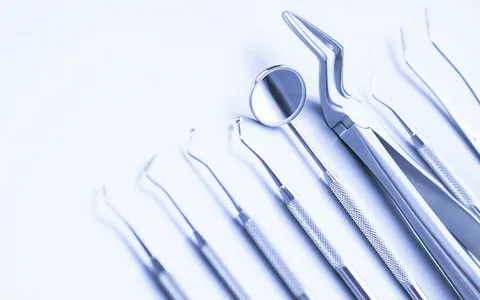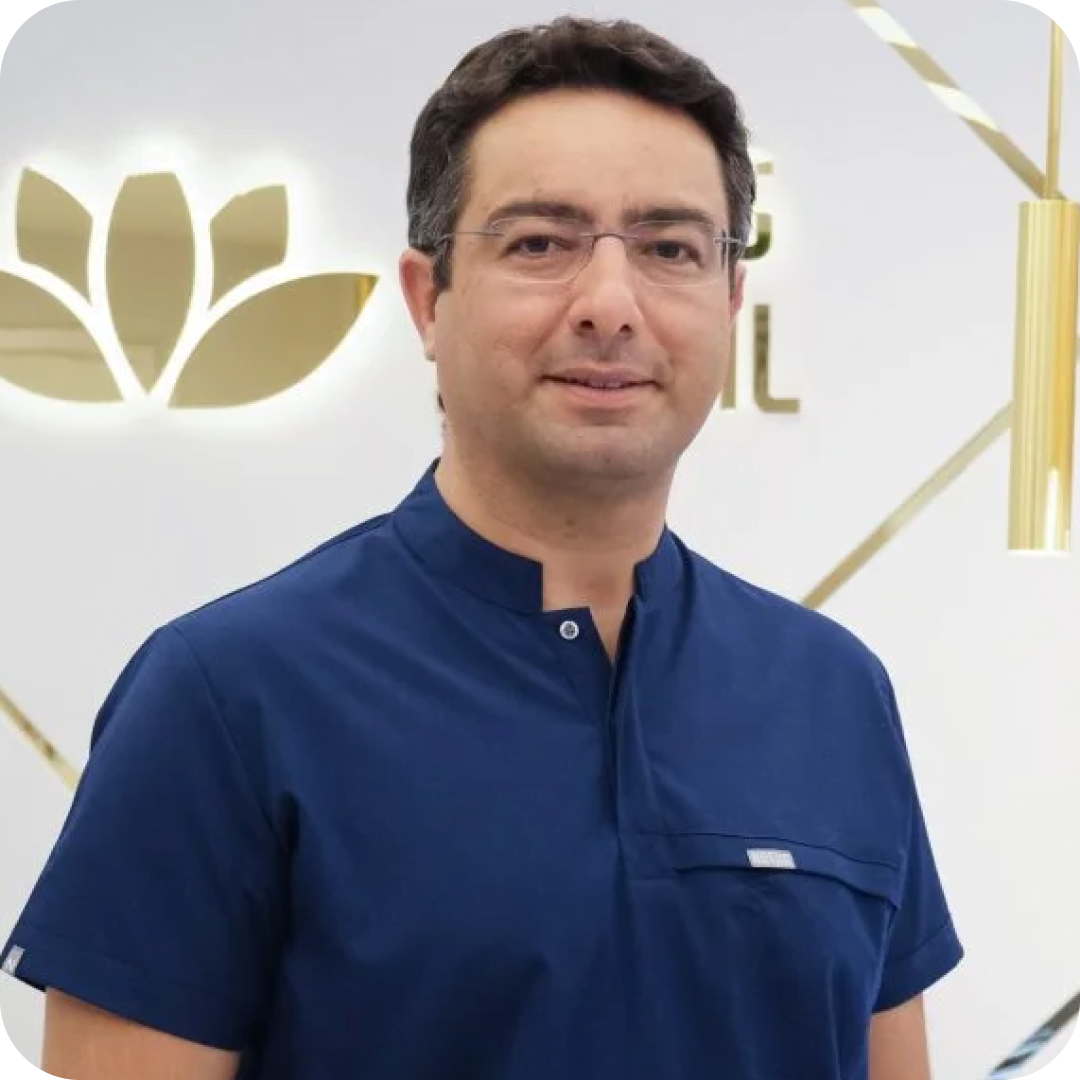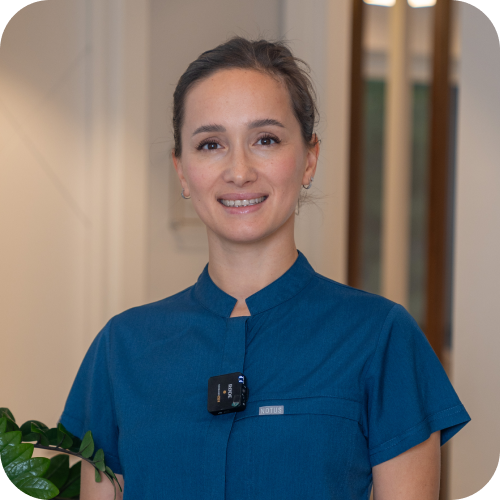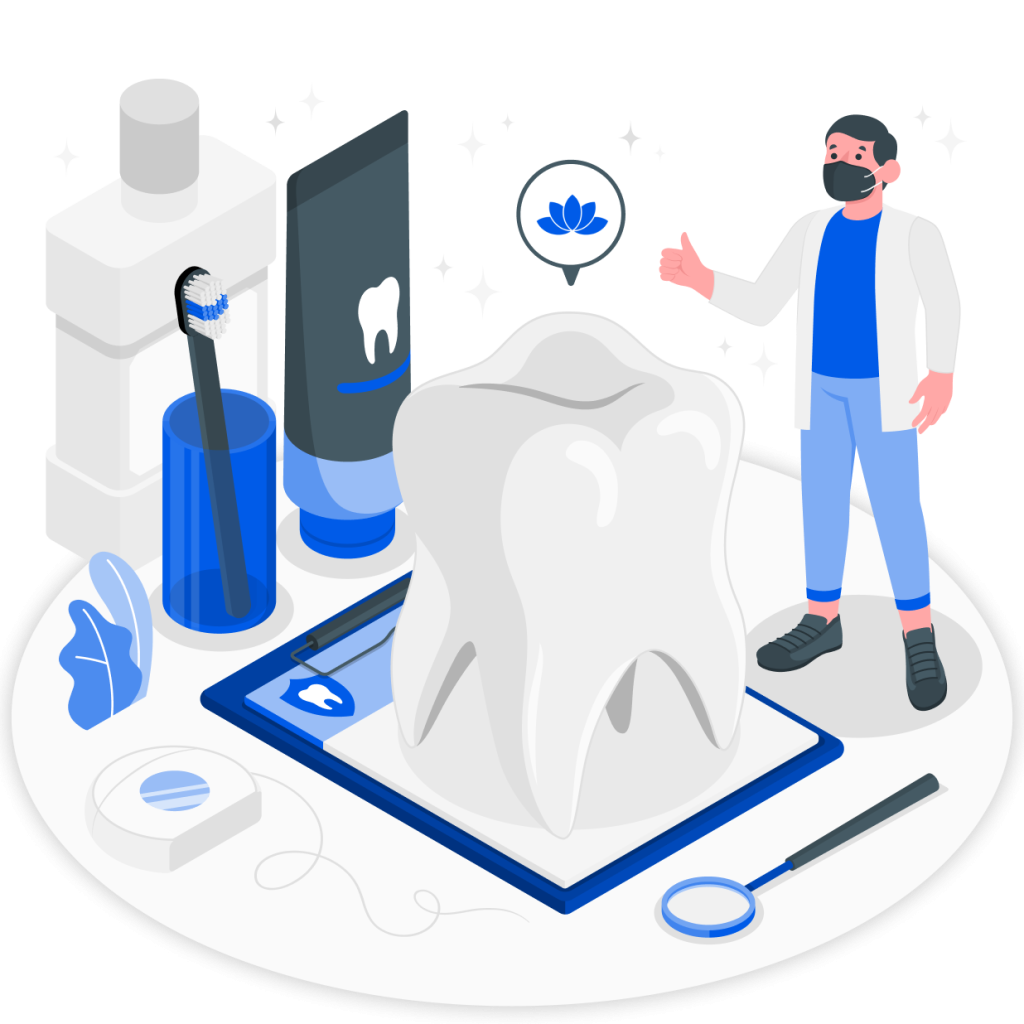The most common disorders in oral and dental health are dental caries and diseases of the tissues surrounding the tooth (gum, jawbone), namely periodontal diseases. Preventive dentistry and treatments aim to take precautions before the diseases occur and to treat the initial disorders with simple applications.
The prevalence of dental caries and periodontal diseases poses a serious problem for public oral health all over the world. It is important to know the causes of complaints such as tooth decay, tartar deposits and bleeding gums in order to understand how to prevent these problems. In order to reduce the prevalence of oral and dental diseases in the community, we must first create awareness of daily care habits and preventive treatment.
How does tooth decay (dental caries) occur?
Microorganisms in the oral environment multiply and form a layer of microbial plaque when daily oral care is disrupted. These microorganisms decompose the carbohydrates we take with food and produce acid. The oral environment is affected by these pH changes and when the pH value exceeds the critical level, biochemical changes occur in the hard tissues of the teeth, which we call caries.
As a result of the mineral loss that starts in the enamel layer of the teeth, cavitation and material loss occur in the tooth. In other words, dental caries is a chronic disease that starts long before it becomes noticeable in the mouth.
Dental caries formation is related to the bacterial capacity of the oral environment, dental plaque, carbohydrate consumption and eating habits, as well as saliva flow rate, saliva buffering capacity and fluorine intake level.
Can tooth decay be treated without filling?
Tooth decay can be controlled in its initial stage. At the stage where there is only mineral loss but no cavitation, dental caries can be stopped and treated without filling by improving oral care and local application of supportive minerals.
When mineral loss, also referred to as demineralization, reaches a critical level, it is not possible to reverse the situation. Early and preventive diagnosis allows the treatment of many initial caries that have not reached a critical level with remineralization agents and optimization of daily care.
What are preventive dental treatments and to whom it can be applied?
Preventive dentistry treatments can be applied to individuals of all ages if the dentist deems it appropriate. However, preventive treatments should be applied much more carefully in children. Because oral and dental diseases that start in childhood affect individuals throughout their lives.
- Regular dental check-up
- Oral care
- Regulation of dietary habits
- Local application of remineralizing agents
- Fissure sealant application
- Use of protective appliances such as dental night guards, sports guards, etc.
- Preventive orthodontics
- Odontiasis guidance (the eruption through the gums of baby teeth)
At what age should regular dental check-ups for children start?
We recommend starting dental check-ups for babies after the first teeth appear in the mouth (6-8 months on average). In this way, dental development control, detection and control of the onset of caries that may occur in the teeth due to nutrition, detection and prevention of habits such as finger sucking, nail biting, long-term use of pacifiers, teeth clenching are aimed.
How to provide proper oral care for children?
Following the appearance of milk teeth in the mouth in early infancy, the teeth should be cleaned daily by the parent with special brushes such as finger brushes or gauze. When the child starts to be able to hold eating utensils such as spoons, an age-appropriate toothbrush can be handed to the child under parental control.
The child can experience tooth brushing as a game. However, in this period, the real care is still undertaken by the parents. Depending on the child’s motor development, children can start brushing their teeth with a trace amount of age-appropriate paste that their parents put on their brushes by the age of 2-3.
However, parental control should continue until the age of 14-16, changing the intensity and style. In addition, the child should be taught to floss once a day at the age of 6, when permanent teeth begin to erupt.
Can an individualized caries risk analysis be performed?
Tooth decay is a disease that occurs on the axis of nutrition and microorganisms and progresses over time. A caries risk analysis can be performed by revealing how these factors work in the individual.
After analyzes such as examining dietary habits, pH measurement of the oral environment, microbial plaque marking and evaluation of care habits, our personal caries risk level is determined.
Measures to be taken and arrangements to be made for caries prevention are planned in line with our caries risk analysis.
How is remineralization (re-mineralization) performed?
There are many methods for remineralization of minerals that are removed from tooth hard tissues. Remineralization methods applied in our clinic:
- Topical fluoride varnish application for individuals with high caries risk
- Prescribing mineralizing pastes and gels that patients can apply at home
- Use of fluorine-releasing glass ionomer fillings when necessary
Is fluorine a harmful agent for our body?
The increasing anti-fluorosis in recent years is actually an issue that causes some misunderstandings in society. Some experts who provide information on this subject state that our body does not need fluorine at all and discussions on this subject create confusion. For this reason, we would like to share the scientific facts about fluorine in detail here:
- Fluorine is one of the trace elements that participate in the structure of teeth and bones in our body.
- It is found naturally in drinking water. There is also fluorine in tea and seafood.
- The information that we should not take fluorine, which participates in the structure of our tissues and is even in the water we drink, is of course not true.
- However, as it is a trace element, too much of it is toxic.
- For this reason, enriching products such as water and milk with fluorine or prescribing fluorine drops to strengthen teeth has not been recommended for many years.
- Because the foods we eat and drink naturally are sufficient for this element, which is present in trace amounts in our body.
- Since the amount of fluorine in drinking water varies regionally and periodically, it is inadvisable to take additional fluorine systemically.
- Fluorine ions added to toothpastes are dosed according to age in the light of scientific data. They do not cause toxic effects provided that they are not swallowed. Fluorine-containing toothpastes provide re-strengthening of teeth in terms of minerals in daily care.
- Fluorine varnishes, which can be applied topically every 6 months to children and adult patients with a high risk of caries in clinics, are used to stop initial caries and prevent new caries by strengthening tooth hard tissues with applications completed under isolation.
What are the contributions of fluorine to oral health?
- Provides resistance to caries by ensuring that tooth hard tissues are well mineralized.
- It has an inhibitory effect on harmful acid formation on microbial dental plaque.
Who is fissure sealant applied to?
Indentations, especially on the chewing surface of the teeth, are called pits and fissures. These indentations, which vary in depth and form from person to person, can increase the risk of caries by making it difficult to remove microbial dental plaque.
In individuals with high caries risk, risky (deep and complex structured) fissure areas are closed with fillings called sealants to reduce bacterial capacity and plaque retention. Thus, cleaning the tooth becomes easier and the risk of caries development is reduced.
What is eruption guidance?
Guiding this process with regular checks and procedures performed during these checks during the process of deciduous teeth falling out and permanent teeth erupting is called eruption guidance. It is usually applied to prevent or minimize the need for orthodontic treatment in cases with mild to moderate space constriction. Erosion guidance may include one or more of the following procedures:
- Abrasion of the deciduous teeth from the lateral surfaces
- Milk tooth extraction(s)




